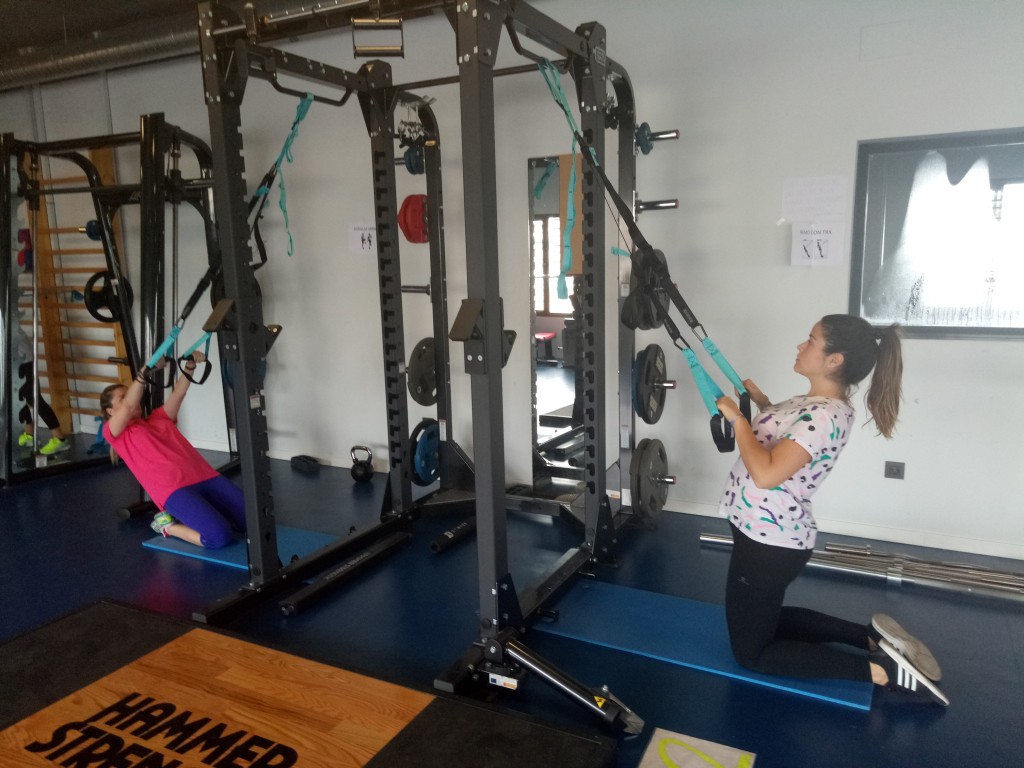
Physical fitness is a powerful predictor of morbidity and mortality in different populations. The aim of this study was to explore the association of self-reported physical fitness (PF) and its components with cardiometabolic and mental health in perimenopausal women. We included in these analyses 191 participants (534 y old) from the FLAMENCO project. Self-reported PF was assessed with the International Fitness Scale (IFIS). Body mass index (BMI), fat mass (FM), waist circumference (WC), systolic and diastolic blood pressure (DBP), high-density lipoprotein cholesterol (HDLC), triglycerides, C-reactive protein (CRP), and fasting glucose were measured. The Beck’s Depression Inventory, State-Trait Anxiety Inventory, Pittsburgh Sleep Quality Index, Life Orientation Test Revised, and Positive and Negative Affect Schedule were used to assess mental health. After adjusting for potential confounders, we observed that greater overall self-reported PF was associated with lower BMI, FM, WC (P<0.001), DBP and CRP, and higher HDL-C (P<0.05). Self-reported cardiorespiratory fitness (CRF), speed-agility, and flexibility were associated with lower BMI, WC, and FM (P<0.001), and self-reported muscle strength (MS) with lower WC and FM (P<0.05). In addition, CRF, MS, and speed-agility were associated with lower CRP (P<0.01), and flexibility with enhanced triglycerides and HDL-C (P<0.05). Overall self-reported PF and all its components were associated with lower depression, anxiety, and negative affect (P<0.01), and greater positive affect (P<0.05). Moreover, overall PF and MS were associated with better sleep quality (P<0.05), and CRF, MS, and speed-agility with greater optimism (P<0.05). Finally, overall PF showed evidence of significant association with less pharmaceutical expenditure (B=7.2, β=0.145, P=0.08).
Based on the present findings, we can conclude that self-reported PF is associated with better cardiometabolic and mental health in perimenopausal women. Therefore, the IFIS might be proposed as an inexpensive, quick, and easy tool in clinical settings.
Complete reference
Virginia. A. Aparicio, Nuria Marín-Jiménez, Irene Coll-Risco, Marta de la Flor-Alemany, Laura Baena-García, Pedro Acosta-Manzano, Pilar Aranda. Doctor, ask your perimenopausal patient about her physical fitness; Association of self-reported physical fitness with cardiometabolic and mental health in perimenopausal women. The FLAMENCO Project. Menopause. 2019 Oct;26(10):1146-1153



